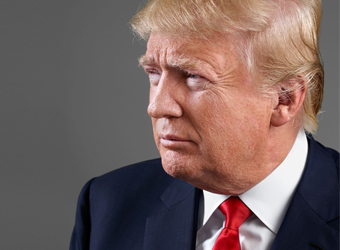Saudi Arabia’s boycott of Qatar is playing havoc with Western markets and businesses, which for years depended on deep-pocketed Gulf investors to heal the scars from the financial crisis. The longer it drags on, the worse it’s likely to get.
QIA reserves spent $40 billion
While the House of Saud has failed to entirely cut off its geopolitical rival from access to food, funding and fuel, the pressure has effectively turned Qatar’s sovereign wealth fund from a globe-trotting buyer to a domestic defender. The Qatar Investment Authority has so far injected almost $40 billion out of total reserves of $340 billion to support the domestic economy, according to Bloomberg News.
The fund is raising cash by selling shares in holdings such as American luxury jeweler Tiffany & Co. and Swiss lender Credit Suisse Group AG. The flow of money from oil-rich East to cash-strapped West is changing course, as Gadfly warned it might in June.
100 Days of Pain
Qatari shares have suffered since a Saudi-led boycott began in June
This doesn’t look like panic selling yet. But given that the QIA is overwhelmingly invested in blue-chip Western European companies such as like Volkswagen AG, Siemens AG, Barclays Plc and Royal Dutch Shell plc, according to Bloomberg data, that’s where you’d expect more sell-downs the longer the spat lasts.
Weak energy prices are already crimping the economy at large, and economists expect Qatar’s gross domestic product this year will expand at its slowest since 1995. There’s added pressure on the wealth fund to put its economy first. Europe may have to come second.
More Firepower Left
The Qatar Investment Authority is injecting a small but growing slice of reserves into economy
The impact of the dispute isn’t just about stock trading; business pressures are creeping in too. Foreign bankers say they’re being asked to choose sides, meaning potential loss of revenue. Tourism and consumer spending are being disrupted as flight bans and boycotts take hold. Given the wealth of the nations involved, it’s probably felt most acutely at the top of society.
London’s swankiest hotels with links to Qatar are said to be blacklisted by high rollers from rival Gulf countries, while Italian luxury brand Prada blamed “geopolitical tension” for a drop in first-half sales in the Middle East. Ironically, Tiffany is vulnerable. It reported a decline in comparable store sales in the United Arab Emirates for the second quarter.
A Shrewd Trade
Qatar’s sovereign wealth fund’s sale of Tiffany shares comes after a good five-year run
The Saudis don’t seem to be profiting much either. While the kingdom’s aggressive and ambitious 32-year-old crown prince, Mohammed bin Salman, has regional support and financial firepower, he appears to be slowing the pace of domestic reforms to shore up his political position. That may be one reason why the float of Saudi Aramco, seen as manna from heaven for investment bankers in London and New York, might be delayed, as Bloomberg News reports.
Weak oil prices have already pressured the domestic economy; now unpredictable politics may derail Saudi’s commitment to throwing its doors open to overseas capital, a move that was always likely to trigger a backlash from conservatives.
If there’s a winner here, it’s probably U.S. President Donald Trump. Qatar may well be re-examining some of its western holdings, but it will still be competing with Saudi Arabia to pour money into U.S. infrastructure investments, a “Buy American” drive that would help secure military and financial backing, according to Christopher Davidson, author of several books on the Middle East, even as the influence of the oil weapon wanes.
But there are plenty of losers from the spat, across the Gulf and the West. With no quick fix, there’s more pain to come.
About the Writer:
Lionel Laurent is a Bloomberg Gadfly columnist covering finance and markets. He previously worked at Reuters and Forbes.
Source: Bloomberg


